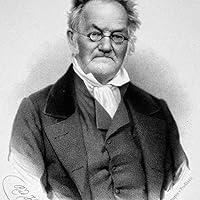
Carl Ritter
Sobre o Autor
Carl Ritter was a pioneering German geographer who significantly contributed to the field of geography in the 19th century. His work laid the foundations for modern geography through his systematic approach to understanding the relationship between humans and their environment. Ritter emphasized the importance of geography as a science that connects various disciplines, including history, sociology, and economics. His most notable work, the 'Die Erdkunde' (The Geography), was a comprehensive treatise that explored the physical, cultural, and political aspects of different regions around the world, promoting a holistic understanding of geography.
Ritter's methodologies and theories influenced generations of geographers and scholars. He advocated for empirical observation and a thorough analysis of geographical data, which helped to elevate geography from a descriptive science to a more analytical discipline. His ideas on the interconnectedness of natural and human systems are still relevant today. Ritter's legacy continues through the various institutions and geographical societies that honor his contributions to the field, making him one of the founding figures in geography as we know it today.